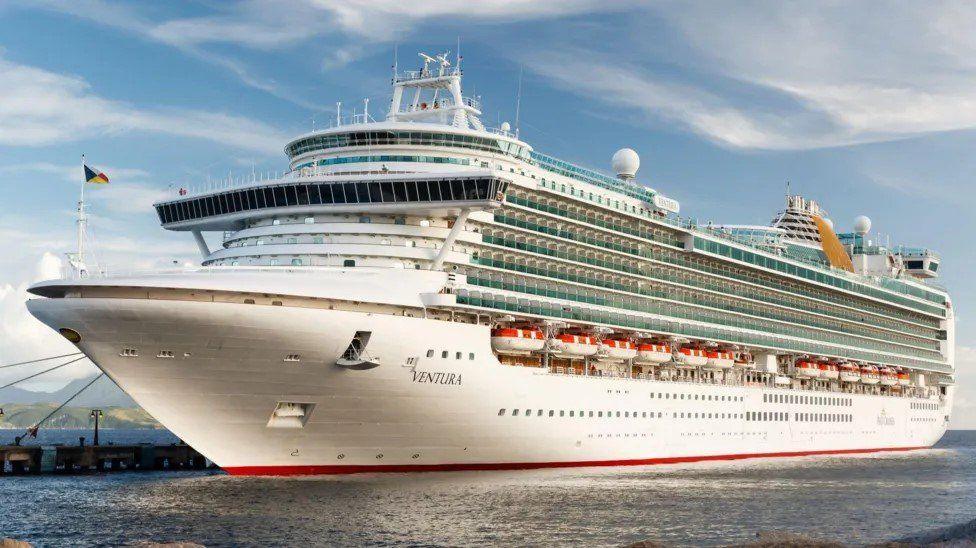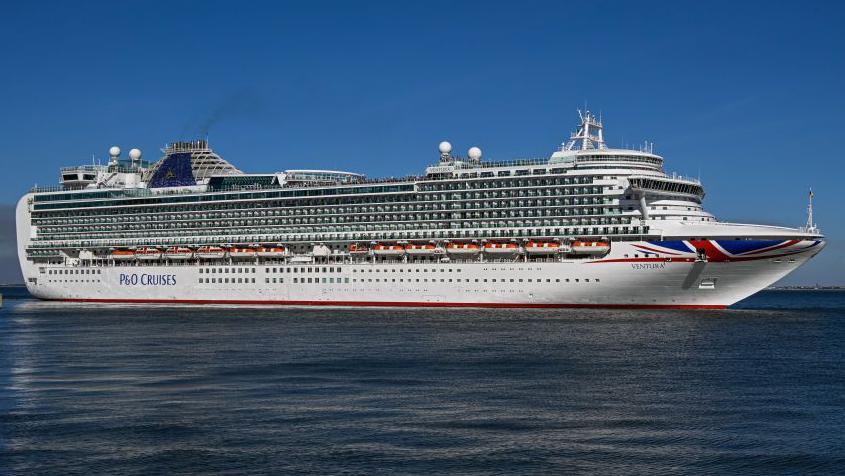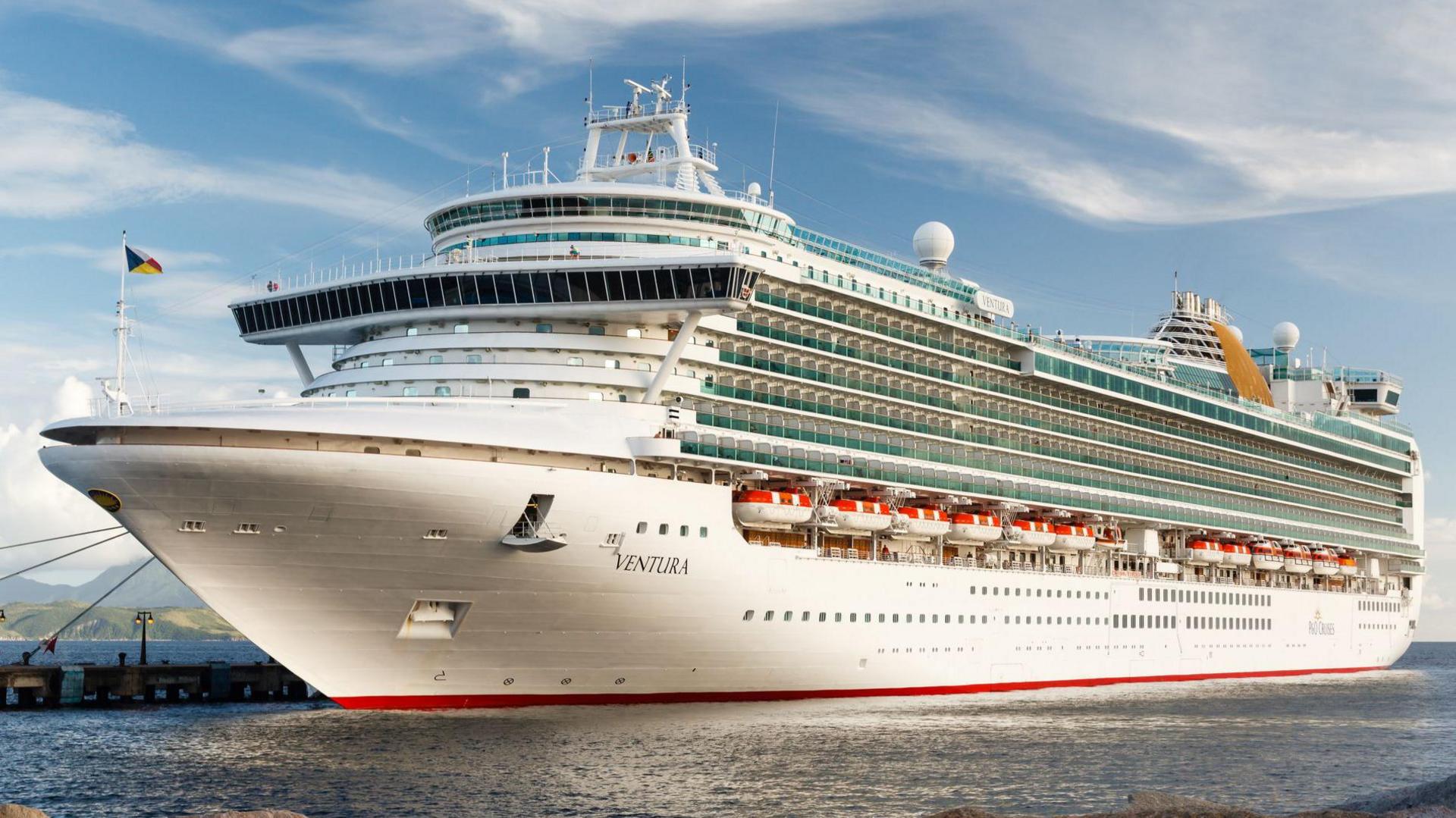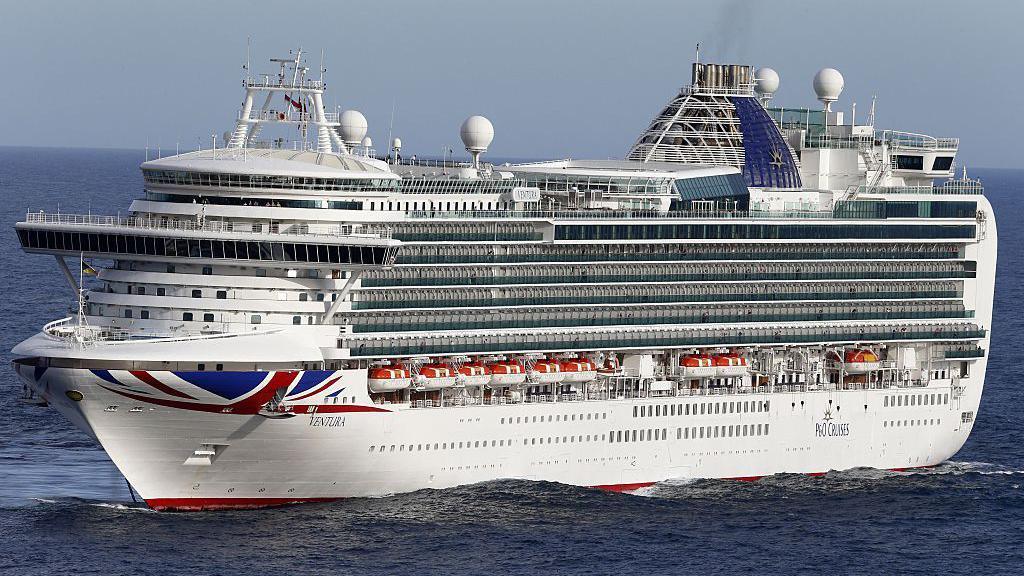Cruise ship boarding put back two hours for cleaning

The latest cruise on the ship which can take 3,078 guests is listed as sold out
- Published
Passengers due to board a cruise ship recently hit by a norovirus outbreak have been asked to arrive later so enhanced cleaning can be carried out.
Ventura is set to leave on Saturday at 19:00 BST for a 10-night cruise to Spain and Portugal.
Port health officials met the ship when it docked on 25 May after a number of passengers became unwell during a two-week cruise around the Canary Islands.
Cruise firm, P&O said embarkation, usually from midday, would be two hours later.

Ventura is set to leave Southampton on Saturday at 19:00 BST
"This is an additional measure given the elevated levels of gastrointestinal symptoms in the UK as a whole at the moment," a P&O spokesperson said.
"We work closely with relevant global and regional health authorities and we have approved, recognised and proven protocols that are in place throughout every cruise to uphold the health and wellbeing of all guests and crew onboard."
The latest cruise on the ship, that can carry 3,078 passenger and 1,205 crew, is listed as sold out.
Norovirus symptoms include:
sudden, projectile vomiting and diarrhoea
high temperature
stomach pains
aching limbs
Norovirus can be caught from:
close contact with - or eating food prepared or handled by - someone infected
touching contaminated surfaces or objects and then your mouth
Washing your hands frequently with soap and water is the best way to stop it spreading.
Follow BBC South on Facebook, external, X (Twitter), external, or Instagram, external. Send your story ideas to south.newsonline@bbc.co.uk, external or via WhatsApp on 0808 100 2240, external.
Related topics
- Published24 May 2024

- Published22 May 2024

- Published25 May 2024
